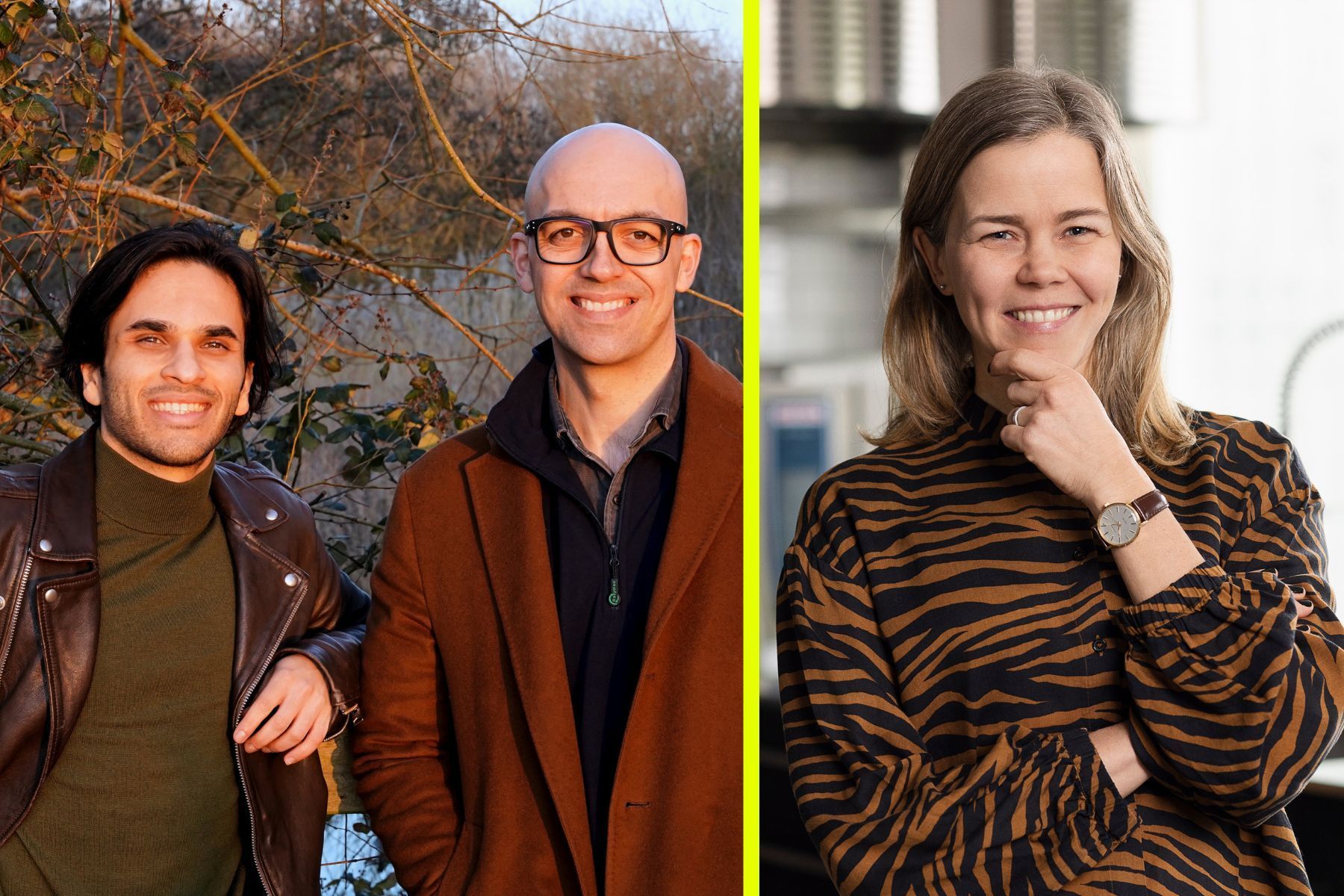Europe's hottest impact trends for 2025: What are top investors betting on?
.avif)
New year, new investments? We asked leading European investment companies how they think startup funding will be spent next year. Impact Loop brings you the lowdown on:<br><br> → How much liquidity we can expect in the impact scene<br> → The sectors likely to boom, from biomaterials to femtech<br> → The key factors behind shifting investment trends in 2025


As 2025 approaches, impact investing in Europe is at a pivotal moment. After a rough patch for the global economy, signs of recovery are finally here. Economists project steady growth into next year (up to 1.4 percent in the Eurozone, according to the European Commission).
For angels and VC funds, this means fresh capital to allocate. But with global challenges like climate change and inequality only intensifying, the question of where that money will make the most difference is more pressing than ever. Impact Loop asked five sharp-eyed investors from across Europe to share where they’re placing their bets—and which industry trends they believe will take off.
Thea Messel, Copenhagen: "We expect a pivot towards investment in adaptation solutions"

Thea Messel, General Partner, Unconventional Ventures, Copenhagen
"In the climate space, we expect a pivot towards investment in climate change adaptation solutions. For the last few years there has been a focus on companies designed to mitigate the effects of global warming. Though we will still see investments going into mitigation efforts, we are at a tipping point where we know we need to prepare for the inevitable changes that climate change will bring. There is a clear need to invest in food and water security solutions, and biodiversity is under tremendous pressure, there is therefore a more mature appetite to invest in solutions that are regenerative towards forests, agriculture and food systems."
After many years of waiting for the femtech sector to boom, we predict it will finally have its moment
"At Unconventional Ventures we also invest in social impact solutions, and after many years of waiting for the femtech sector to boom, we predict it will finally have its moment in 2025. Research into female health has grown in recent years, which gives weight to startups in this sector. We’re also seeing more patient activism from women themselves, actively searching for solutions to female health challenges, resulting in a paradigm shift. In parallel we’re seeing a continued investor appetite for companies led by women and other minorities, despite political winds from the US and elsewhere seeming to blow against championing diversity."
Camille Richard, Paris: "AI plus biodiversity can be an interesting combination"

Camille Richard, Chief Impact Officer, Alter Equity, Paris:
(Editor’s note: Camille Richard recently ‘switched sides’ and joined Alter as CIO after a career managing sustainability on the startup side)
"Looking at the big tendencies for impact investment in France, it's the growth of the size of the funds. You are also starting (to see) professionalization of the teams, and I am a good representation of that. People doing impact are not just doing ESG reporting anymore, we are part of the operating partners team."
"I think in terms of ESG reporting and natural resource management, AI can bring something. I always say that ESG reporting is a way to analyze weak signals before something bigger happens, and maybe AI can be interesting to play with in that regard. We also have this huge interest in biodiversity that is growing, but you have very few investment opportunities in biodiversity. So AI plus biodiversity can be an interesting combination for the next years."
I think water is not getting the attention it's supposed to have
"I started my career working in water, and I think water is not getting the attention it's supposed to have, because everything is dependent on it. You have some investment opportunities, but it's very low if you compare it with green energy or with AI. So I think it's something that we should look more at."
"What could be interesting to see are the consequences of the Trump re-election. But if you look at it in a pragmatic way, solar energy developed way more under the first Trump mandate than under Biden's. So it's not going to be a better moment for green economies, but it's very difficult to say everything is going to stop."
Ruth Brännvall, Stockholm: "There will be more angel investors willing to bet on early-stage startups"

Ruth Brännvall, founder and CEO of Impact Invest, Stockholm:
"I expect an ongoing buzz around companies producing materials and products that can replace plastics, especially in the Nordics. Reselo in Gothenburg which makes sustainable biomaterials is one example of the type of company I expect to see more of.
"There are also signs that companies investing in circular economy business models will do well, such as Sajkla, which makes it super easy to re-use and recondition furniture. There’s also been a lot of innovation in healthcare solutions in the UK recently and we’re hoping it will become higher on the agenda of Nordic investors too."
"But I’m hopeful that the biggest trend across Europe in 2025 will simply be that there is more money to go round. With the global economy in a much better position than a year ago, there will be more angel investors willing to bet on early-stage startups. Companies that have weathered the financial storm of the last few years are also in a better position to score scale-up funding: they’ve proven they can adjust and adapt even in tricky times. As a result, we also see many founders being better at managing and predicting their cash flow going forward."
Hannes Tamme, Munich: "Excited for anything that enables a more adaptable energy grid"

Hannes Tamme, Investment Associate, Ananda Impact Ventures, Munich:
"We are impact generalists, and we are excited about quite a lot. We are looking into energy transition and we are very excited for anything that enables a more adaptable energy grid. We’re looking into flexibility within the energy sector, in the built environment as well, from the single home up to the company level. Also sustainable computing."
"We see the rise of AI, it’s forecast that by 2030 we're going to have a minimum of 10 percent of our global energy usage coming from those services. We are looking into what kind of startups are out there that offer more efficient computing solutions."
"Another one that's of interest is water intelligence. Probably 90 percent of the impacts of climate change will come through problems around water, and water is still not a very intelligently treated resource around the world. That’s a topic that definitely needs attention and funding."
Probably 90 percent of the impacts of climate change will come through problems around water
"We saw over the last year an increase in raised capital on the fund side. It's a bit of an upswing that we probably see continued in the next year. It's a bit unclear, because of course the political landscape, which is particularly important to European companies that scale, because we still have a bit of a growth problem in Europe. Growth funding, anything after series A, still remains a tough topic. It's getting better, but it is still a very small amount of allocated capital compared to markets like the US or others."
Maria Samoilova: "There is a lot to be done on the social side"

Maria Samoilova, Head of Impact Bridge Spain Impact Debt Fund, Madrid:
"We believe there is still significant growth potential in private impact debt. It’s a product that works well for companies in the impact ecosystem: more agile than other sources of capital, more flexible in terms of structure and offering funding without dilution, as opposed to equity financing. In Spain in particular, small businesses have limited access to alternative sources of capital from a debt perspective as compared to other European countries, and there is room to grow."
"We see a large variety of opportunities in impact companies but on a relatively small scale. There are numerous new initiatives being launched, many of them still very early stage. We’ve yet to reach a point where large companies have social or environmental impact propositions at their core, and the new entrants will need time to scale up."
We see a large variety of opportunities in impact companies but on a relatively small scale
"If we look at the composition of themes addressed by private debt funds today, one third focuses on net-zero aligned metrics, another third on environmental metrics and less than one third on social metrics. There is a lot to be done on the social side as a very underrepresented category in private capital at the moment."
Subscribe to Europe's new platform for impact news
- Quality journalism, interviews, investor profiles and deep-dives
- Join 11 000+ top impact founders and investors across Europe
- Or get our free daily newsletter
Keep reading – get in the loop!
- Håll dig i loopen med vårt dagliga nyhetsbrev (gratis!)
- Full tillgång till daglig kvalitetsjournalistik med allt du behöver veta inom impact
- Affärsnätverk för entreprenörer och investerare med månatliga meetups
Fortsätt läsa – kom in i loopen!
- Håll dig i loopen med vårt dagliga nyhetsbrev (gratis)!
- Full tillgång till daglig kvalitetsjournalistik med allt du behöver veta inom impact
- Affärsnätverk för entreprenörer och investerare med månatliga meetups



.avif)





